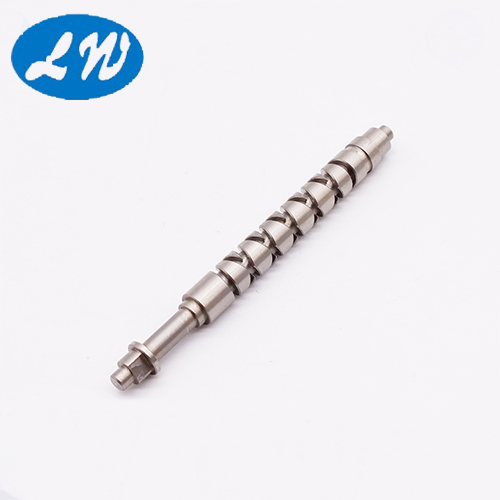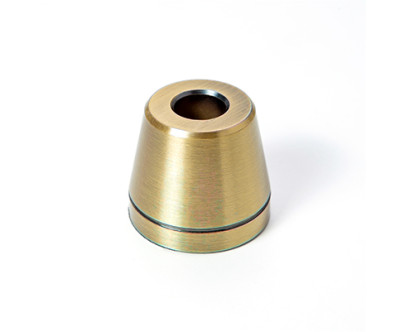Precision Engineering in Motion: The Importance of Shaft Parts Processing
In the realm of modern manufacturing and engineering, precision and performance are not just desirable—they are critical. As industries such as automotive, aerospace, robotics, medical devices, and heavy machinery push the boundaries of what technology can accomplish, the components at the heart of mechanical motion must meet increasingly strict tolerances and durability requirements. Among these vital components, shaft parts hold a special place. They are essential for rotational motion, torque transmission, and mechanical stability across a wide variety of equipment.
One area of rising interest within this niche is Hot Selling Mechanical Parts Shaft Parts Processing. These products reflect the highest standards of precision machining and are engineered to perform consistently in demanding applications. Whether operating in high-speed engines or robotic arms, mechanical shafts must be carefully designed and processed to ensure optimal alignment, surface finish, and resistance to wear.
Shaft parts are typically cylindrical components used to transmit power or rotation. They may include features such as splines, keyways, threads, and bearing surfaces. The manufacturing process for these parts is complex, often involving several stages such as material selection, CNC turning, milling, grinding, heat treatment, and surface coating. Each stage plays a critical role in ensuring that the shaft meets its design specifications and can endure the mechanical stresses it will face in real-world conditions.
Material selection is one of the first and most important decisions in shaft manufacturing. Depending on the intended use, manufacturers may choose from carbon steel, stainless steel, titanium, or aluminum alloys. Each material offers different strengths, hardness, corrosion resistance, and machinability characteristics. For instance, stainless steel is preferred in corrosive environments like marine or food processing equipment, while titanium is often used in aerospace due to its high strength-to-weight ratio.
Precision machining is where the art and science of shaft production truly come into play. With the advent of advanced CNC machines, it is now possible to produce shaft parts with extraordinary accuracy—often within microns. Computer-controlled lathes and mills can create intricate geometries and finishes that were once impossible or extremely costly to achieve. Features like concentric grooves, internal bores, or even threaded ends can be added with high repeatability and minimal error.
Heat treatment is another vital step. By carefully controlling the heating and cooling of the metal, manufacturers can increase the hardness and fatigue strength of shaft parts. This is particularly important in applications where the shaft is subjected to high torsional loads, vibrations, or temperature changes. A well-processed shaft not only performs better but also reduces the risk of unexpected failure or maintenance downtime.
Another factor in the processing of mechanical shaft parts is surface treatment. Polishing, anodizing, or coating the shaft can enhance its resistance to wear and corrosion, prolonging its lifespan and improving the overall performance of the system. A smooth surface finish also reduces friction, which is especially important in rotating machinery that must operate quietly and efficiently.
Shaft parts are integral to many types of mechanical assemblies, including gearboxes, electric motors, pumps, conveyor systems, and industrial automation equipment. In the automotive industry, for example, drive shafts must transfer power from the engine to the wheels reliably under high loads and changing conditions. In robotics, miniature precision shafts allow for accurate positioning and smooth motion. The reliability of the entire system often depends on the quality of these hidden yet essential components.
Customization is a major selling point in today’s shaft processing industry. Manufacturers that offer custom machining services can tailor shaft parts to exact specifications provided by clients. This includes not only dimensional accuracy but also unique features such as hollow designs, multi-step diameters, or integrated mechanical interfaces. Custom processing ensures that each shaft will fit perfectly within its intended application, reducing assembly time and improving end-product performance.
Quality control is non-negotiable in shaft processing. Leading companies implement rigorous inspection procedures, using tools such as coordinate measuring machines (CMM), surface roughness testers, and hardness testers to ensure each shaft meets the required specifications. These measures help eliminate defects, reduce waste, and ensure that customers receive consistent, high-performance parts with every order.
In addition to technical capabilities, supply chain reliability also plays a crucial role. Timely delivery, flexible order quantities, and transparent communication can be the difference between a successful project and costly delays. That’s why customers increasingly seek out suppliers with a proven track record in both quality manufacturing and responsive service. The popularity of hot selling mechanical shaft parts is often a reflection of this balance between engineering excellence and customer satisfaction.
In conclusion, Hot Selling Mechanical Parts Shaft Parts Processing represents a sophisticated fusion of design, materials science, and manufacturing technology. These components are more than just rods of metal—they are finely tuned solutions that support the heart of countless machines. As innovation drives the demand for more efficient, compact, and durable systems, the role of high-quality shaft parts will only continue to grow. Manufacturers and engineers who invest in precision shaft solutions will be better equipped to meet the evolving demands of their industries and customers alike.



